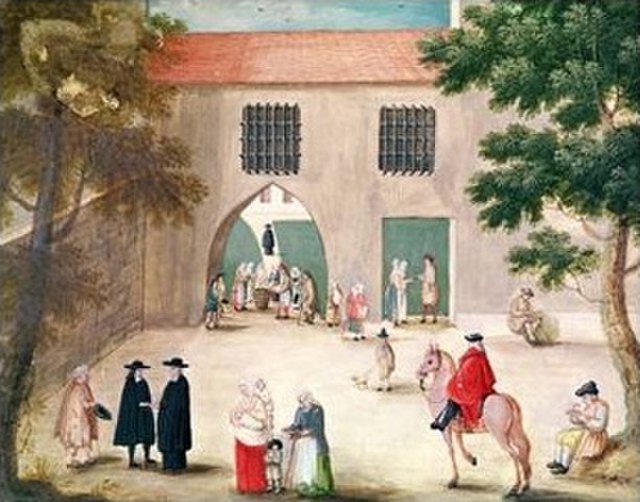Great Depression in Canada
The worldwide Great Depression of the early 1930s was a social and economic shock that left millions of Canadians unemployed, hungry and often homeless. Few countries were affected as severely as Canada during what became known as the "Dirty Thirties", due to Canada's heavy dependence on raw material and farm exports, combined with a crippling Prairies drought known as the Dust Bowl. Widespread losses of jobs and savings ultimately transformed the country by triggering the birth of social welfare, a variety of populist political movements, and a more activist role for government in the economy.
A Montreal soup kitchen in 1931
Relief Work repairing a highway
The On-To-Ottawa Trek
Blaming it on Bennett: A 1931 political cartoon suggests that Liberals had failed to take responsibility for their own errors.
Welfare, or commonly social welfare, is a type of government support intended to ensure that members of a society can meet basic human needs such as food and shelter. Social security may either be synonymous with welfare, or refer specifically to social insurance programs which provide support only to those who have previously contributed, as opposed to social assistance programs which provide support on the basis of need alone. The International Labour Organization defines social security as covering support for those in old age, support for the maintenance of children, medical treatment, parental and sick leave, unemployment and disability benefits, and support for sufferers of occupational injury.
A family support centre in Saint Peter Port, Guernsey, which provides assistance to families with children
Distributing alms to the poor, abbey of Port-Royal des Champs c. 1710
An office of the Social Insurance Institution (KELA) in Seinäjoki, Finland
President Roosevelt signs the Social Security Act, 14 August 1935.








